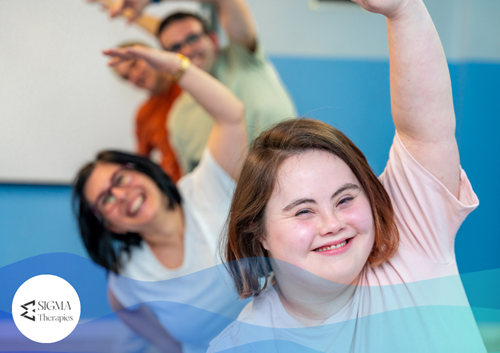How Psychologists with Positive Behaviour Support Expertise Transform NDIS Clients' Lives
Individuals with disabilities often find themselves dealing with a complex landscape. Specialised support is essential to manage behaviours that may limit their participation in daily life. Psychologists with expertise in Positive Behaviour Support (PBS) are in a unique position to help NDIS participants.
PBS practitioners have the ability to guide their clients through the process of developing the required skills to navigate social situations, regulate their emotions, and manage stress.

Understanding Positive Behaviour Support (PBS)
Positive Behaviour Support is a holistic, person-centered approach that seeks to understand the underlying causes of challenging behaviors. Unlike traditional methods that focus on suppressing unwanted actions, Positive Behaviour Support aims to create supportive environments, teach new skills, and address individual needs to reduce the likelihood of challenging behaviors occurring in the first place. It's a proactive, rather than reactive, approach that empowers individuals to live more fulfilling lives.
Key Principles of PBS:
- Person-Centered: Every intervention is tailored to the individual's unique needs, preferences, and goals.
- Understanding Behaviour: Challenging behaviors are viewed as attempts to communicate needs or escape unpleasant situations.
- Proactive Strategies: Focus is on creating supportive environments and teaching new skills to prevent challenging behaviors.
- Data-Driven Decision Making: Interventions are continuously monitored and adjusted based on data collected.
- Collaboration: Involves the individual, their family, support workers, and other professionals in the planning and implementation process.
The effectiveness of PBS relies on a thorough understanding of the individual's behavior and the factors that influence it. This is achieved through Functional Behaviour Assessments (FBAs). They are, in essence, a way of uncovering the "why" behind behaviors. FBAs are used to identify the function or purpose of a challenging behaviour. The process consists of gathering information about the behaviour itself, the antecedents (what happens before the behaviour), and the consequences (what happens after the behaviour).
Based on the results of the Functional Behaviour Assessment, a Positive Behaviour Support plan is developed. This plan outlines specific strategies and interventions designed to address the underlying function of the challenging behaviour.
The Role of Psychologists in Positive Behaviour Support
Psychologists who specialise in Positive Behaviour Support conduct comprehensive behavioural assessments to identify the underlying causes of certain behaviours. They use this insight to create tailored intervention plans. Positive Behaviour Support plans may involve teaching coping mechanisms, modifying environments to reduce stressors, and training caregivers to reinforce positive behaviours at home and in community settings.
By working closely with the individual and their support network, Positive Behaviour Support psychologists foster long-term behavioural improvements that enhance the person's overall wellbeing and ability to engage meaningfully in daily activities.
Benefits of Positive Behaviour Support for NDIS Participants
One of the most significant advantages of Positive Behaviour Support is its focus on long-term solutions rather than short-term fixes. This approach helps with building confidence, developing healthier relationships, and participating more fully in the community. By reducing stress and frustration linked to challenging behaviours, Positive Behaviour Support also leads to improved mental health and a better quality of life. Families and caregivers benefit as well, as they receive guidance on how to provide consistent and effective support.
Real-Life Impact of PBS
Positive Behaviour Support is more than just a theory—it transforms lives. Let’s see how we could apply PBS techniques in practice to achieve valuable change:
- For a child with autism: Imagine a 7-year-old girl with autism, struggling with severe meltdowns triggered by sensory overload. As her psychologists, we would use Positive Behaviour Support techniques to identify her stressors and implement strategies like structured routines, visual schedules, and a sensory-friendly home setup. Over time, she would learn self-regulation techniques, reducing the frequency and intensity of her meltdowns. She then could confidently attend school and enjoy social activities with friends.
- A teen with ADHD: A 15-year-old with ADHD would find it difficult to focus in school and would hence engage in disruptive behaviour. As Positive Behaviour Support psychologists, we could introduce a reward-based system and teach him mindfulness techniques to manage impulsivity. By also involving his teachers and parents in the process, his environment would become more structured, helping him succeed academically while improving his relationships with peers.
- An adult with Intellectual disability: A 35-year-old man with an intellectual disability could exhibit aggressive behaviours when frustrated. As his psychologists, we would work with him to develop communication skills, teaching him to express emotions through words instead of outbursts. We could guide his caregivers with de-escalation techniques, leading to a significant reduction in incidents. This would allow the client to live more independently and enjoy a stable routine with less stress.
Positive Behaviour Support plans have been shown to significantly improve the independence, happiness, and overall quality of life of NDIS clients.
Accessing Positive Behaviour Support Services Through NDIS
The NDIS Commission plays a vital role in setting standards and protecting the rights of people with disabilities. Recent announcements and developments highlight the increasing emphasis on PBS as a core component of quality support services.
NDIS participants can access Positive Behaviour Support services as part of their funded supports under the 'Improved Relationships' and 'Capacity Building' categories. These services can include one-on-one therapy sessions, family training programs, and consultations with professionals to refine behavioural strategies over time. Engaging with experienced PBS psychologists ensures individuals receive comprehensive, structured support tailored to their unique needs.
Psychologists with expertise in Positive Behaviour Support are making a profound difference in the lives of NDIS clients. By understanding the underlying causes of challenging behaviors and implementing person-centered, evidence-based interventions, they are empowering individuals to live more fulfilling, independent, and inclusive lives.
The future of addressing challenging behaviours is the holistic approach to treatment. By integrating Positive Behaviour Support with other therapies, such as occupational therapy and speech therapy, we can better address all aspects of a client's needs, enhancing their independence and wellbeing.
Find out more about Sigma Therapies’ holistic approach to mental health and physical wellbeing
here.
Useful links: Check the fact sheets and other resources available to participants on the NDIA website: What is eh Positive Behaviour Support
Change starts with one conversation.
Call us today and let’s talk about how we can support you or your loved one.
Free 15-minute phone consultation to understand your story.



